CES Summer School
Epistemologies of the South IV - The end of a cognitive empire: what comes next?
June 21 to 29, 2018
Curia (Portugal)
Session Coordinators
| Boaventura de Sousa Santos | |
|---|---|
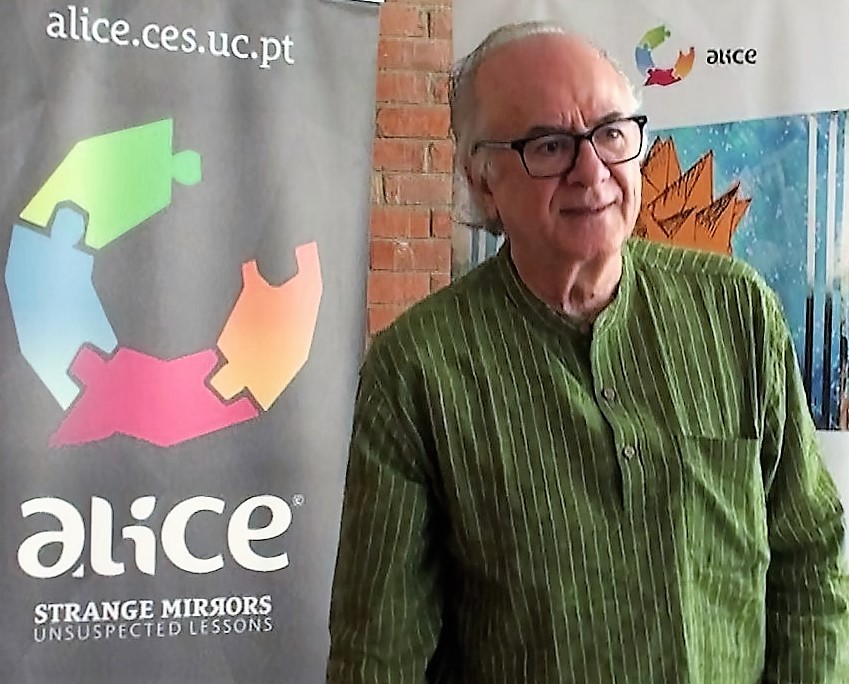 |
|
|
Boaventura de Sousa Santos is Professor of Sociology at the School of Economics, University of Coimbra (Portugal), Distinguished Legal Scholar at the University of Wisconsin-Madison Law School and Global Legal Scholar at the University of Warwick. He is the Director of the Centre for Social Studies of the University of Coimbra and Scientific Coordinator of the Permanent Observatory for Portuguese Justice. Currently he coordinates of the research project ALICE – Strange Mirrors, Unsuspected Lessons. He has published widely on globalisation, sociology of law and the state, epistemology, democracy, and human rights in Portuguese, Spanish, English, Italian, French and German. Among his most recent and relevant publications are: Epistemologies of the South: Justice Against Epistemicide (Paradigm, 2014); Toward a New Common Sense: Law, Science and Politics in the Paradigmatic Transition (Routledge, 1995); The Rise of the Global Left. The World Social Forum and Beyond (Zed Books, 2006); Toward a New Legal Common Sense. Law, globalization, and emancipation (Butterworths, 2002). > further |
|
| Bruno Sena Martins | |
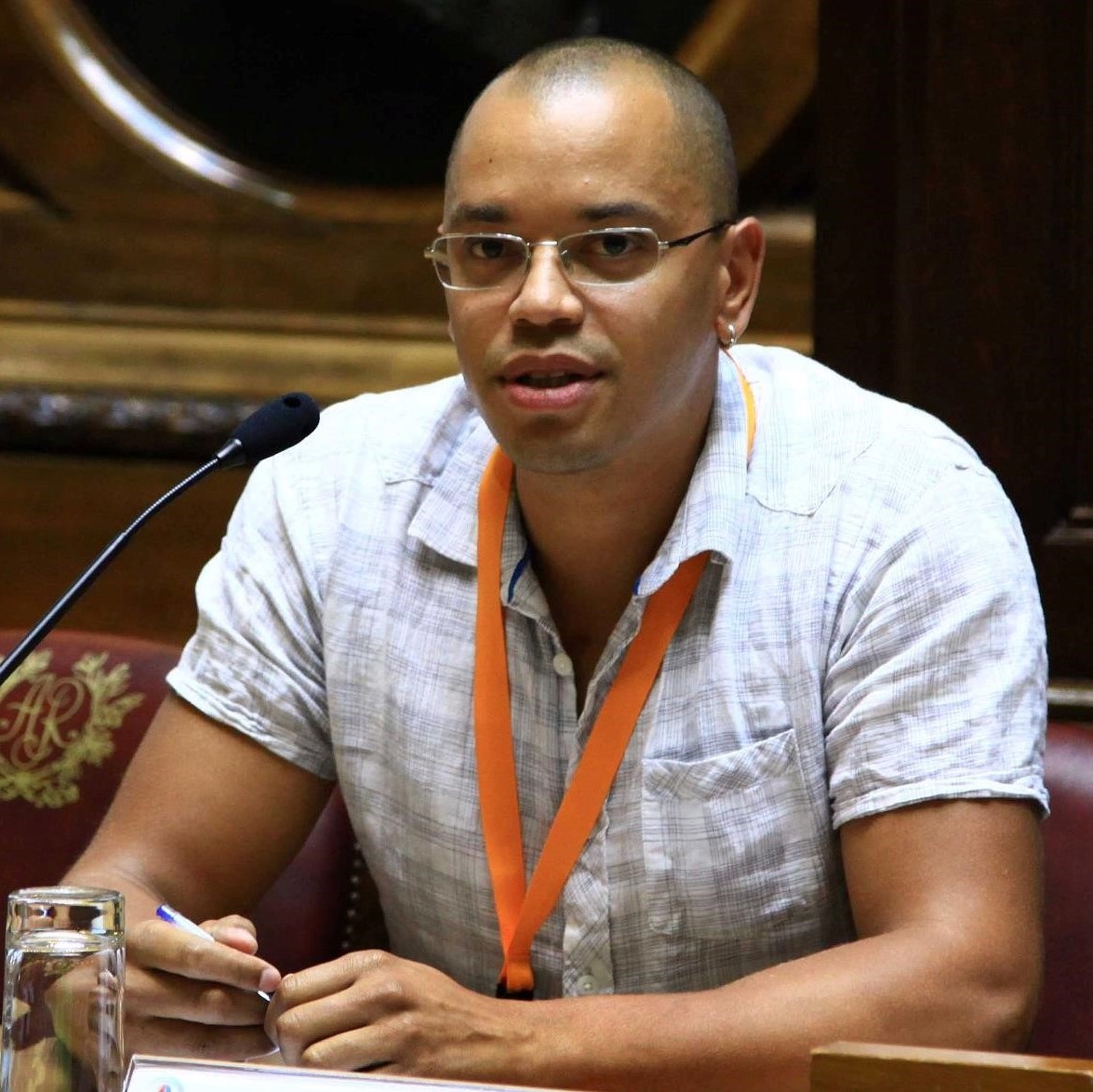 |
|
|
Bruno Sena Martins is Senior Researcher at the Centre for Social Studies, University of Coimbra. He is currently Vice-President of CES Scientific Board, executive co-coordinator of the Doctoral Programme "Human Rights in Contemporary Societies", and co-coordinator of the educational outreach activity "Ces Goes to School". Between 2013 and 2016, he was Co-coordinator of the research group "Democracy, Citizenship and Law Research Group (DECIDe)" In 2007 he was Research Fellow at the Centre for Disability Studies (CDS), School of Sociology and Social Policy. His research interests are centred on the body, disability, human rights and colonialism. He has undertaken ethnographic fieldwork in Portugal, India and Mozambique. > further |
|
| Inês Nascimento Rodrigues | |
.jpg) |
|
|
Inês Nascimento Rodrigues is a postdoctoral researcher at "CROME - Crossed Memories, Politics of Silence: The Colonial-Liberation Wars in Postcolonial Times", coordinated by Miguel Cardina and funded by the European Research Council. She holds a PhD in Postcolonialisms and Global Citizenship from CES/FEUC, in which she developed an analysis of the representations of the Batepá Massacre in São Tomé and Príncipe. Her current research interests include memory studies, postcolonial theories and the debates about the representation and commemoration of the Colonial-Liberation wars. > further |
|
| João Arriscado Nunes | |
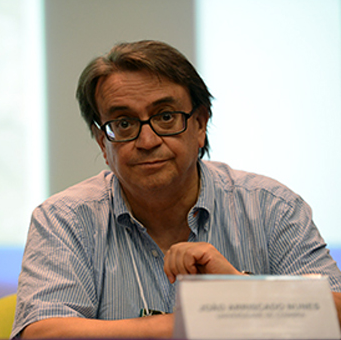 |
|
|
João Arriscado Nunes is Professor of Sociology at the School of Economics and Researcher at CES. Co-coordinator of the Doctoral Programme "Governance, Knowledge and Innovation) and was a Visiting Researcher at FIOCRUZ in Rio de Janeiro. His research interests include social studies of science and technology (namely social studies of biomedicine, health and the life sciences and public engagement with science and technology), political sociology (democracy and participation) and social theory. Co-editor of Enteados de Galileu: A Semiperiferia no Sistema Mundial da Ciência (Porto:Afrontamento, 2001, with Maria Eduarda Gonçalves); Reinventing Democracy:Grassroots Movements in Portugal (London: Routledge, 2006, with Boaventura de Sousa Santos), The Dynamics of Patient Organizations in Europe (Paris:Presses de l'École des Mines, with Madeleine Akrich, Florence Patterson and Vololona Rabeharisoa); Objectos Impuros: Experiências em Estudos Sobre a Ciência (Porto: Afrontamento, 2008, with Ricardo Roque). He was PI of the projects BIOSENSE and "Evaluating the State of Public Knowledge on Health and Health Information in Portugal". Participated in other national and international research projects. > further |
|
| José Manuel Mendes | |
 |
|
|
José Manuel Mendes, a researcher of the Centre for Social Studies - University of Coimbra, holds a PhD in Sociology by the School of Economics of the University of Coimbra, where he is an Assistant Professor. His research focus is on inequalities, social mobility, social movements and collective action and, more recently, on the themes of risk and social vulnerability.He is co-coordinator with Rita Serra of the Risk Observatory (OSIRIS) of the Centre for Social Studies. He also co-coordinates, with Luísa Sales, the Trauma Centre of the Centre for Social Studies.Among his more important publications are Os lugares (im) possíveis da cidadania. Estado e risco num mundo globalizado (co-edited with pedro Araújo, Almedina, 2013) and Do ressentimento ao reconhecimento: vozes, identidades e processos políticos nos Açores (1974-1996) (Afrontamento, 2003). > further |
|
| Leire Mesa | |
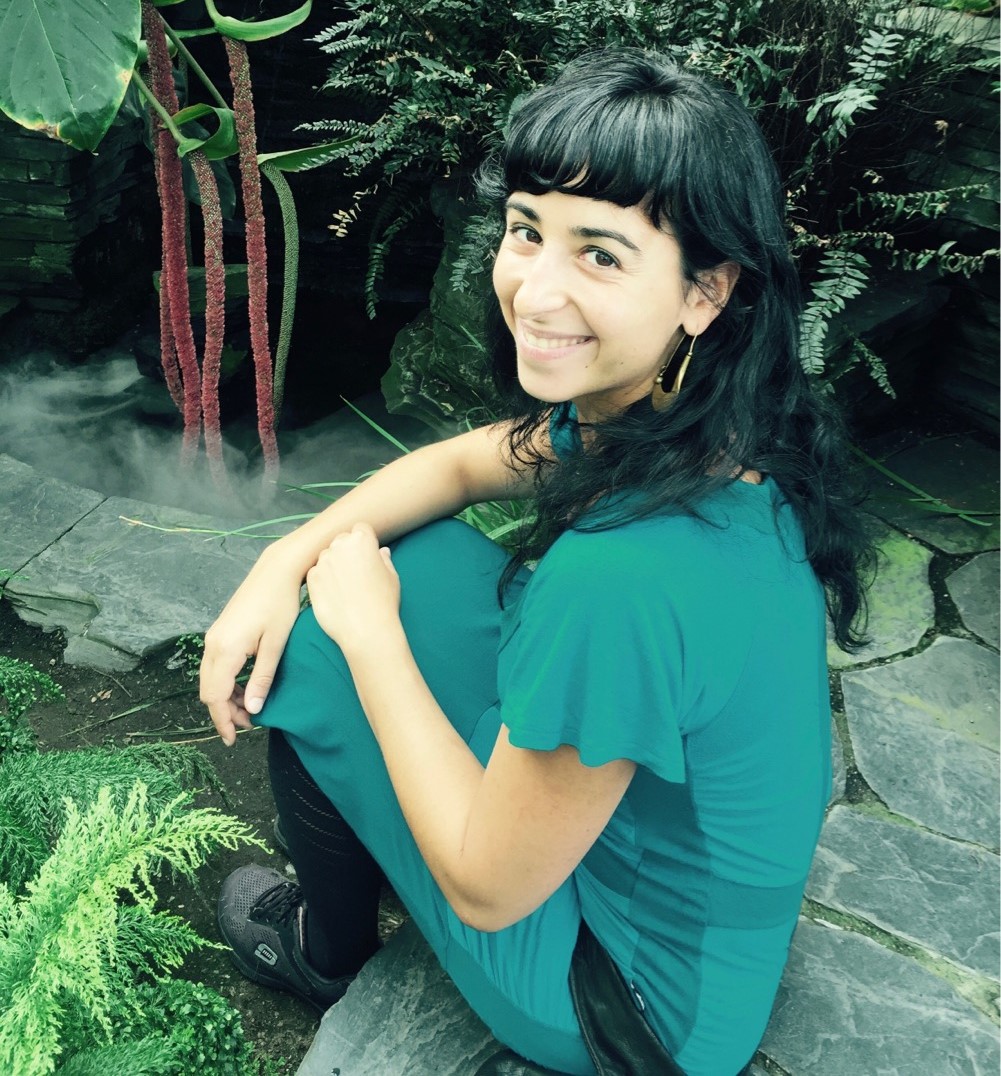 |
|
|
Leire Mesa, Basque Country 1987. Circus artist dedicated to creation, generator of actions and synergies for circus, theater and various rebellions. The circus is her discipline as a stage language and the Trapeze her circus specialty. Her work with the body has gone through dance, gestural theater and she is currently studying with Alexander Sasha Gavrilov to enhance her vertical capacity. Her beginnings in circus training, in different spaces of non-regulated education, lead him to act and travel around the world. She was co-founder of the theater-circus company of Atropecias del País Vasco street. Travel to Bristol to study at the official school Circomedia. In England he works with the company Nofit State in the show Bianco. And later, as a result of her collaboration with the director Firenza Guidi, she made her first solo show, I Live, with her. In 2015 he presents his thesis Twisting the Balance as a work itinerary, research and methodology, within the program of the Master NPP of the DOCH University in Stockholm. The project is born from the need to twist his circus practice in interaction with other artistic, social and political forms. He founded the Cie Twisting the Balance. He works for the Circus Company Animal Religion in Sapiens Zoo, creates the INK community project in Alby (Stockholm), collaborates in the Political Circus show of Metro to Madina in Lebanon. She recently completed a postgraduate degree at the University of KKH (Stockholm) in architecture/cities/utopias, creating the exhibition INK and the performative piece Witches, Bitches on the Beaches. At the same time she is working in the organisation of the Encuentro Voz Láctea: Magdalena Tarahumara and as part of the artistic advisory group for the organization of the Subcase festival in Stockholm |
|
| Maria Paula Meneses | |
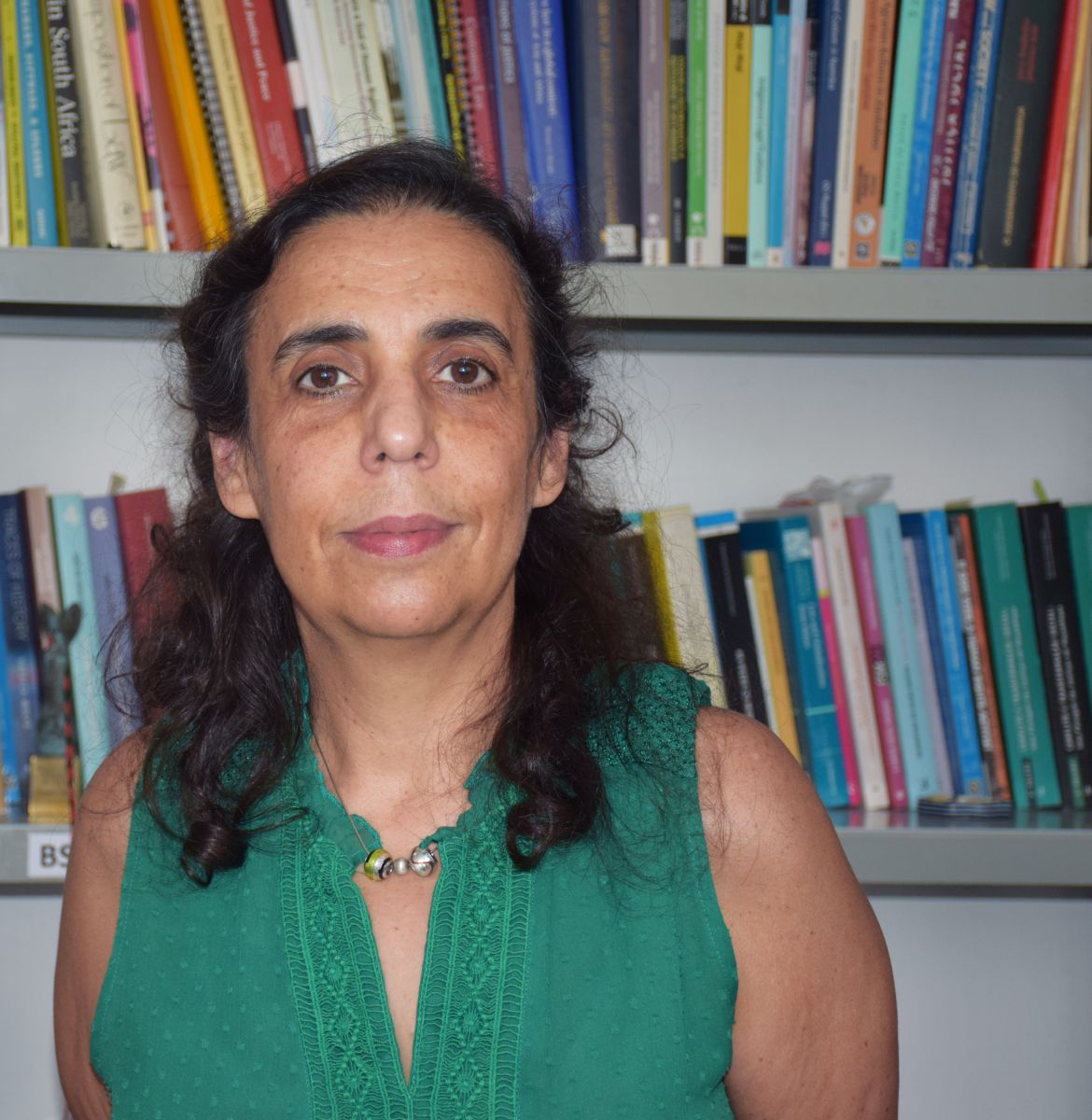 |
|
|
Maria Paula Meneses is a researcher at the Centre for Social Studies, University of Coimbra. She is also a member of the Centre for Social Studies Aquino de Bragança, in Mozambique. Among the research topics which she currently works on are postcolonial debates, legal pluralism, with particular emphasis on the relations between the State and the 'traditional authorities' in the African context , and the role of official history, memory and 'other' stories in the rescue of a broader sense of belonging in the field of contemporary identity processes, especially in the African geopolitical context. Maria Paula Meneses has taught at the University of Seville (Spain), SOAS (UK), Bayreuth (Germany), Universidade Federal Fluminense (Brazil), among others.Among her published works are: O Direito por fora do Direito: as instâncias extra-judiciais de resolução de conflitos em Luanda (co-edited with Julio Lopes, Almedina, 2012); Epistemologias do Sul (co-edited with Boaventura de Sousa Santos, Cortez, 2012); Law and Justice in a Multicultural Society: The Case of Mozambique (co-edited with Boaventura de Sousa Santos and João Carlos Trindade, CODESRIA, 2006). > further |
|
| Mick Mengucci | |
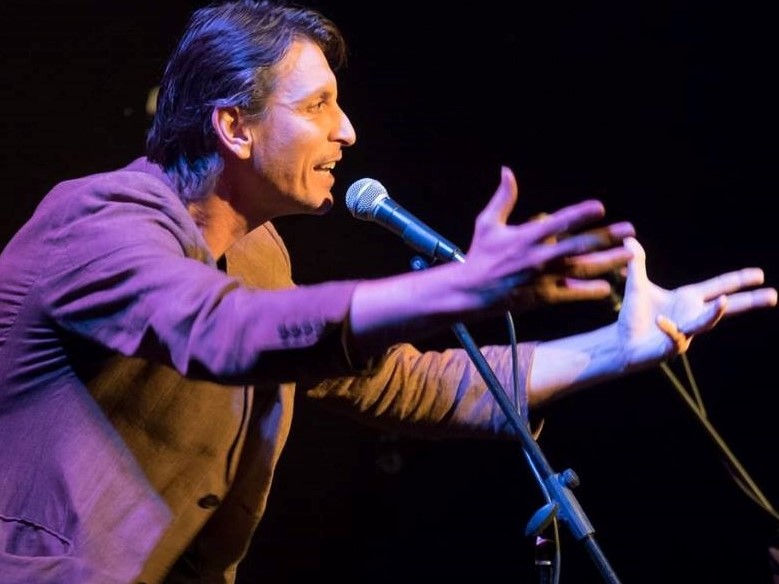 |
|
| Musician, performer and multimedia engineer. Italian, residing in Lisbon, since 1998, mixes scientific skills with his music, poetry and art. He works as entertainer and singer in bands and coordinates artistic projects mixing spoken word with multimedia interaction. Gives workshops in schools, around poetry slam, digital arts and musicality in collaboration with other artists and human beings through the Lab.I.O. – Laboratory for Interaction with orality. Mick was finalist in the first slam he participated to (second poetry slam ever organized in Portugal by the “Festival do Silencio” organization in 2010) and then won many m onthly editions of Slam LX and two editions of Slam Sul. Apart from that he started the regular events of poetry slam in Portugal with a group called Poetry Slam Lisboa, now not active anymore, and the with Lab.I.O. Slam. > further | |
| Raquel Lima | |
.jpg) |
|
|
Raquel Lima was born in 1983 (Lisbon). Graduated in Art Studies from the Faculty of Arts and Humanities of the University of Lisbon, she works at the Centre for Comparative Studies of the same university. She is currently a PhD candidate in the Doctoral Programme Post-Colonialisms and Global Citizenship (CES-FEUC) at the University of Coimbra. Her research focuses on literature, oral tradition, subalternities, diasporas and feminisms. She has collaborated in several artistic structures as cultural manager in the area of contemporary dance, theatre, music, literature, architecture, performance, cinema and visual arts. In 2011 she founded the Pantalassa Cultural Association for artistic mobility in the Lusophone space. She writes poetry to be spoken, having participated in several national and international events dedicated to the word and to spoken-word, in Italy, France, Poland, United Kingdom, Belgium, Brazil, Estonia, Spain, Holland, Sao Tome and Principe, Sweden and Switzerland. She published her poems in fanzines, poetic anthologies and collections of experimental literature, such as Edições Côdeas, 3,2,1, SLAM !, Fazedores de Letras, Poetas do Povo, the feminine fanzine PPKDanada and anthology Crazy Tartu. As a trainer of Poetry workshops, among others, is the Slam São Tomé, under of the artistic residence 'Portugal Contemporâneo com São Tomé and Príncipe', the project 'Palabra Dita e Feita' in Lisbon and Porto, the 1st Lusophone Poetry Slam within the IV Biennial of Lusophone Cultures and the 'Poetry and Gender' Workshop in Tartu, Estonia (2015) and São Paulo, Brazil (2017). Between 2012 and 2017 she was General Coordinator of PortugalSLAM - Platform and International Festival of Poetry and Performance. |
|
| Renan Inquérito | |
2.jpg) |
|
|
Brazilian, Master in Geography by Unicamp and PhD candidate at Unesp, he began his trajectory as a teacher in rural settlements, moving on to teaching at elementary, middle and high schools and college. Artistically, he has been in the hip-hop movement since 1997, when he founded the rap group Inquérito, with which he recorded 5 albums throughout his career. With three published poetry books his work blends art and education with a hip-hop and literature angle. In his master's dissertation “Cada Canto um Rap, Cada Rap um Canto” [Every Song a Rap, Every Rap a Song] (Unicamp, 2012), told the story of Brazilian regionalities through rap. He co-authored the Rap Opera Global script with the sociologist Boaventura de Sousa Santos, with whom he also conducts research and is preparing a book.> further |
|
| Sara Araújo | |
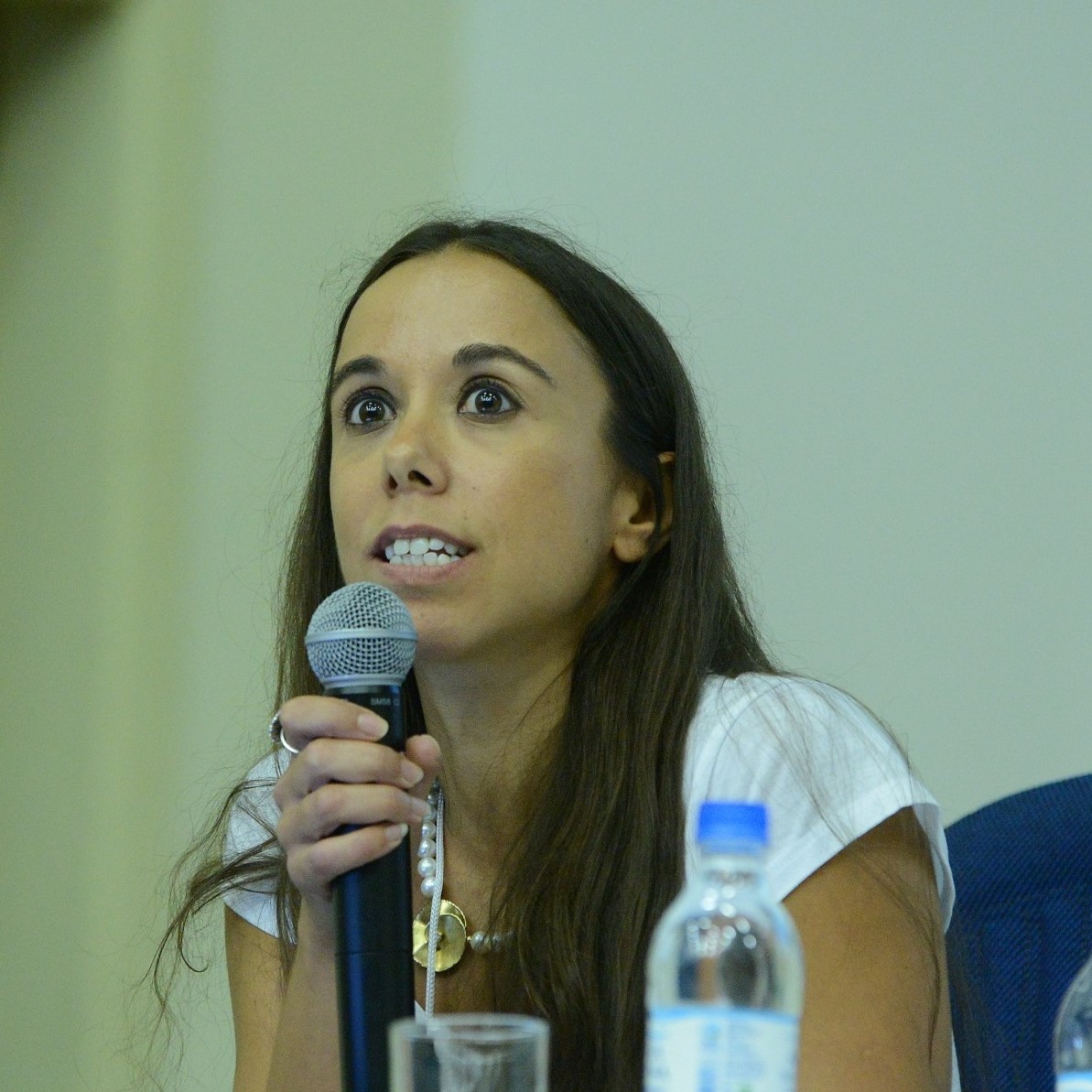 |
|
| Sara Araújo is a researcher at the Centre for Social Studies of the University of Coimbra and one of the coordinators of the Summer School. Sara Araújo holds a PhD in Sociology of Law with a thesis on legal pluralism and Epistemologies of the South. Member of the coordinating team of the Alice project, currently transformed into the Research programme in Epistemologies of the South. She is also a member of the collective that coordinates the Popular University of Social Movements (UPMS) in Europe. She was part of the Permanent Observatory for Portuguese Justice (2003-2005), member of the research team of the Centro de Formação Jurídica e Judiciária de Moçambique (2005-2006) and associate researcher at the Centre for African Studies-Eduardo Mondlane University (2008-2010). Co-editor of the book A dinâmica do pluralismo jurídico em Moçambique (2014) and has published several articles in scientific journals on justice in Mozambique and decolonialisation of State and law. Coauthor of two chapters of the book Retratos da justiça moçambicana: Redes informais de Resolução de conflitos em espaços urbanos e rurais (Ed. André Cristiano José, 2016), author, among others, of chapters in the following books: A ciência ao serviço do Desenvolvimento? Experiências de países africanos falantes de língua oficial portuguesa (Ed. Teresa Cruz and Silva and Isabel Casimiro, 2015), In Search of Justice and Peace. Traditional and Informal Justice Systems in Africa (Ed. Manfred Hinz and Clever Mapaure, 2012); and Pluralismo Jurídico. Os novos caminhos da contemporaneidade (Ed. Antônio Wolkmer, 2010). Her research interests included legal pluralism, transformative constitutionalism, post-abyssal judicial cartographies, human rights and interculturality, popular education, ecology of knowledges and ecology of justices. Experienced in fieldwork in Portugal, Mozambique and Timor Leste. > further | |
| Teresa Cunha | |
 |
|
|
Teresa Cunha was born in Huambo, Angola and lives in Coimbra, Portugal. She has a PhD in Sociology by the University of Coimbra with a comparative thesis on 'A feminist and post-colonial analysis of East Timorese and Mozambican women's power and authority strategies'. She is working in a post-doctoral project with the following title: Women InPower Women. Democracy, dignity and good-living in Mozambique, South Africa and Brazil. is a senior researcher at the Centre for Social Studies of Coimbra University. She is a professor at the College of Education in Coimbra, senior trainer of the Council of Europe and president of the NGO 'Action for Justice and Peace'. She has studied Philosophy, Theology, Sciences of Education and Sociology. Her research main interests are: feminism, post-colonialism and Indian ocean, human rights; women and post-conflict; security and memory, feminist economies. She has published the following books: Ensaios pela Democracia. Justiça, dignidade e bem-viver; Elas no Sul e no Norte; Timor-Leste: Crónica da Observação da Coragem; Feto Timor Nain Hitu - Sete Mulheres de Timor; Vozes das Mulheres de Timor; Andar Por Outros Caminhos; Raízes da ParticipAcção. She also published several scientific articles and book chapters in different countries and languages. > further |
|
 |
|

